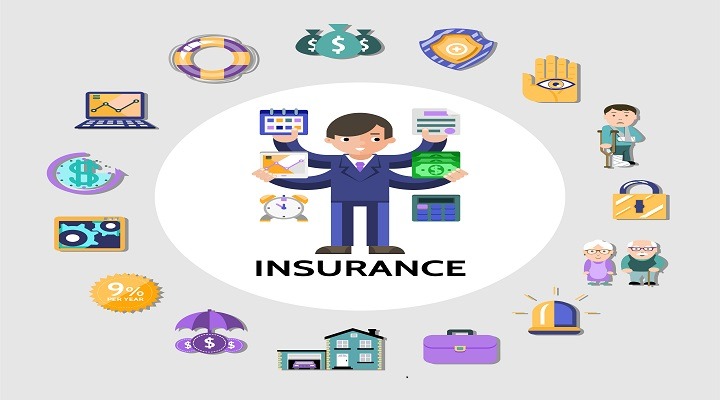Types of Insurance Every Small Business Should Consider
- ByStartupStory | July 31, 2024

Running a small business is exciting and challenging, filled with opportunities and risks. Amidst the hustle of daily operations, safeguarding your business against unforeseen events is crucial. Insurance plays a vital role in protecting your hard-earned investments from potential disasters.
Choosing the right insurance policies will secure your business’s future and ensure peace of mind. This article delves into the essential types of insurance every small business should consider, helping you make informed decisions to shield your enterprise from unexpected setbacks.
Why Insurance is Important for Small Businesses
Insurance is a vital component of risk management for small businesses. It transforms uncertainty into manageable risks, letting you focus on growth and innovation without constant worry. Imagine a sudden property damage, a legal claim, or an employee injury – without insurance, such events could spell disaster.
However, with the right coverage, these setbacks become minor bumps, ensuring that your business bounces swiftly rather than suffering severe financial strain. In essence, insurance is the foundation that supports your business’s resilience and long-term success.
Types of Insurance Policies for Small Businesses
General liability insurance
General liability insurance is a must-have for any small business. It protects against claims of bodily injury, property damage, and personal injury that can occur on your business premises or as a result of your business operations.
This coverage helps pay for legal fees, medical expenses, and damages, ensuring your business remains financially stable in the face of lawsuits.
Commercial property insurance
Commercial property insurance protects your business’s physical assets, including buildings, equipment, inventory, and furniture, from damage or loss caused by events such as fire, theft, vandalism, and natural disasters.
This policy ensures you can quickly recover and resume operations without significant financial loss. It also covers the cost of repairing or replacing damaged property, helping you maintain business continuity.
Workmen compensation insurance
Workmen’s compensation insurance is crucial for businesses to protect both employees and employers in the event of workplace injuries or illnesses. This insurance covers medical expenses, lost wages, and rehabilitation costs for employees who suffer work-related injuries or illnesses.
According to the Employees’ Compensation Act of 1923, this insurance typically covers workers in hazardous jobs such as manufacturing, construction, and mining. By caring for your employees’ well-being, you foster loyalty and ensure compliance with legal obligations, ultimately reducing the risk of lawsuits against your business.
Professional liability insurance
Professional liability insurance (errors and omissions (E&O) insurance) is essential for businesses that provide professional services or advice. It protects against claims of negligence, errors, or omissions that result in financial loss for clients.
This policy is crucial for maintaining your business’s reputation and financial health. It covers legal fees, settlements, and damages, ensuring a single mistake doesn’t jeopardise your business’s future.
Business income insurance
Business income insurance, or business interruption insurance, covers the loss of income your business suffers after a disaster. This insurance helps you continue to pay bills, salaries, and other operating expenses while your business is closed for repairs or rebuilding.
It ensures that your business can survive financially during unexpected downtimes. By protecting your income, this policy helps maintain financial stability and peace of mind.
Commercial vehicle insurance
For businesses that use vehicles for operations, commercial vehicle insurance is essential. This insurance covers damage or loss of company vehicles due to accidents, theft, or other incidents. It also includes liability coverage for third-party injuries or property damage caused by your business vehicles.
This insurance helps manage the risks associated with vehicle use and protects your assets by ensuring your vehicles are covered against unforeseen events. This coverage allows you to operate your business vehicles with confidence and security.
Cyber liability Insurance
Cyber liability insurance is becoming increasingly important for small businesses in today’s digital age. This insurance protects against data breaches, cyber-attacks, and other cyber risks that can compromise sensitive information.
It covers legal fees, notification costs, and credit monitoring for affected customers, helping your business recover from cyber incidents. With cyber threats on the rise, having this insurance is crucial for protecting your business’s digital assets and reputation.
Product liability insurance
If your business manufactures or sells products, product liability insurance is crucial. It protects against claims of injury or damage caused by defective products. This insurance covers legal fees, medical costs, and settlements, ensuring your business remains protected from costly product-related claims.
By having this coverage, you can confidently bring your products to market, knowing that you are protected against potential legal and financial consequences.
Key person insurance
Key person insurance protects your business against losing a key employee, such as a founder, CEO, or any critical team member whose death or disability would significantly impact the company’s operations.
This insurance provides a payout to help cover the financial loss and costs associated with finding and training a replacement. Securing key person insurance can ensure business continuity and protect against the unexpected loss of vital personnel.
Group health insurance
Group health insurance is an essential benefit for businesses with multiple employees. It provides health coverage for your employees, helping to cover medical expenses such as doctor visits, hospital stays, and medications.
Offering group health insurance can boost employee morale, reduce turnover, and attract top talent to your company. It demonstrates the commitment to employees’ well-being, fostering a healthier and more productive workforce.
Conclusion
Insurance is a critical aspect of risk management for small businesses. By understanding the types of insurance policies available and choosing the right ones for your business, you can protect your assets, employees, and financial future.
Investing in comprehensive insurance coverage ensures that your business can withstand unexpected challenges and continue to thrive.









